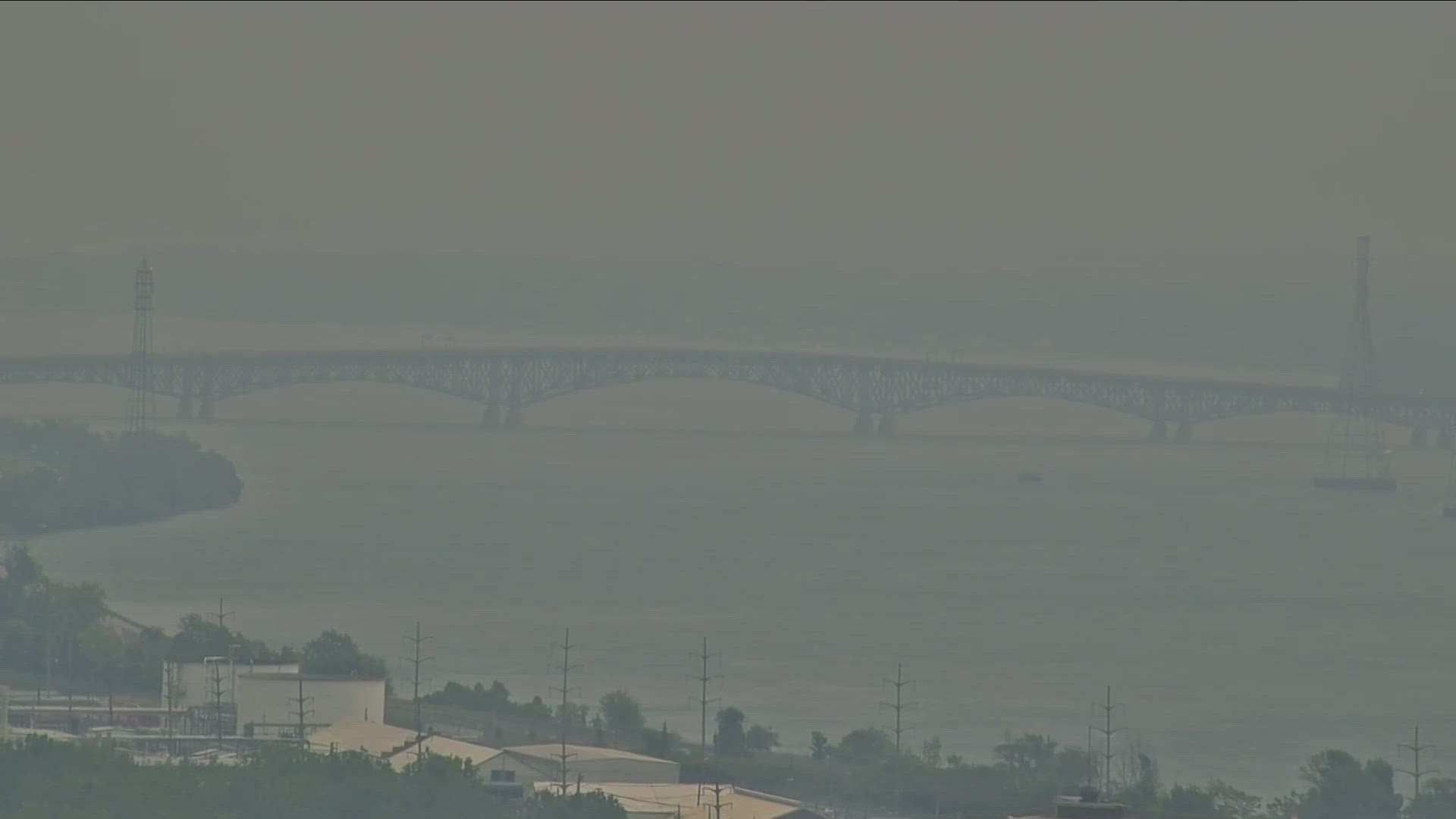BUFFALO, N.Y. — Smoke from roughly 100 wildfires burning in Quebec, Canada, is drifting across Western New York, causing a stark decline in air quality and posing a health hazard.
The New York Department of Environmental Conservation (DEC) issued an air quality alert for all of Wednesday, June 7. Officials advise those susceptible to respiratory ailments, the very young, the elderly, and those with underlying conditions to remain indoors as much as possible for the time being.
"Visibility is terrible, and you can smell the smoke in the air," New York State Department of Environmental Conservation Commissioner Basil Seggos said at a press conference on Tuesday. He added, "This is (an) extraordinary level of wildfires happening right now in Canada, chiefly in Quebec."
New York Governor Kathy Hochul issued a statement late Tuesday afternoon saying, "New York State experts are monitoring our air quality every day to ensure New Yorkers have the latest information about current air quality in their communities and what they can do to protect themselves. I encourage New Yorkers, especially those sensitive to air quality, to take appropriate steps to help limit risk of exposure."
Smoke was seen over Western New York early Tuesday, with another plume expected on Wednesday. According to Quebec's fire agency (SOPFEU), an average year will see roughly one square mile affected by wildfires by June 5. But this season, 600 square miles have already burned.
Commissioner Seggos said the cause for this can be attributed to dry conditions and high temperatures in the region, with the wind blowing the dangerous air south to New York. As Seggos pointed out, these levels are "extraordinary." Since May 12, the DEC has issued four air quality advisories.
Stacy Malesiewski, who works for Austin Air Systems, a company that manufactures air purifiers, says that these fires contain a lot of chemicals.
"Wildfire season used to be summer, maybe fall. Now we're having wildfire years," Malesiewski said. "I have to tell you, for me, this is a new phenomenon."
Dr. Gary Ginsberg is the director of the New York State Department of Health's Center for Environmental Health. He warns people that the fires pose a tremendous health threat.
"Our general advice is to go slow," Ginsberg said. "Be a guide for yourself and realize these are unusual circumstances... It's better to go inside as a general rule today."
The DEC said exposure to the fine particulate matter found in the wildfire smoke can "cause short-term health effects such as irritation to the eyes, nose, and throat, coughing, sneezing, runny nose, and shortness of breath."
"Wildfire smoke, pollution from wildfire smoke is ten times more harmful to human health than any other type of pollution," Austin Air's Malesiewski said.
Seggos said, "We are vigilant. Our Meteorologists have been watching air quality conditions every day. Over the last few weeks, we have been watching the trend of fires in the Northern Canada provinces and seeing potential air impacts in New York."
Niagara Falls School District superintendent Mark Laurrie has been in talks with other districts about potentially canceling after-school activities if it becomes necessary to protect kids.
Laurrie told 2 On Your Side, "We're all really in the same position right now, which is to monitor, to listen and watch."

